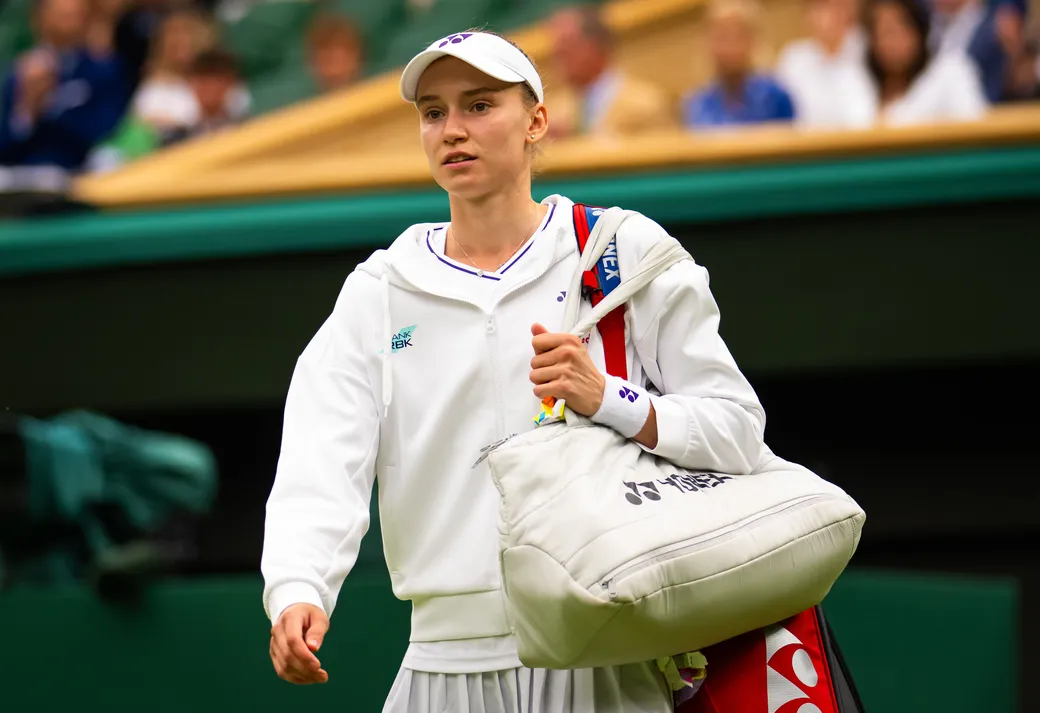Jannik Sinner is a tennis star. In Italy, his celebrity transcends his sport
Jannik Sinner is trying to speak, but his own name is resounding too loudly across the Inalpi Arena in Turin. Lit up on billboards, written on placards, chanted across the aisles. Sinner, the first Italian to achieve the men’s world No. 1 ranking, isn’t just the featured attraction of the ATP Tour Finals tournament in his home country: He is the tournament, on the court and off it.
There he is on billboards in the train station. There he is on banners hanging from light poles. There he is — well, not him, a character of him — on GialappaShow, a satirical comedy programme in the vein of Saturday Night Live, which does skits playing off Sinner’s poodle of red hair and his meticulously even manner of speaking.
And there he is on the court, blowing away basically everyone who isn’t Carlos Alcaraz as he has done most of the year, slaloming into the semifinals with three wins from three and the noise of around 12,000 fans about his ears on every point.
Three years ago, despite flashes of brilliance, Sinner had kind of stagnated in tennis no man’s land.
Two years ago, he was a work in progress who fell short of making the season-ending Tour Finals here in Turin, the city that was supposed to be his northern Italian playground.
A year ago he lost in the final to Novak Djokovic but beat him along the way, hinting loudly at what might be coming. Alcaraz said he was the next No. 1.
This year, he fulfilled that prophecy: he is world No. 1 and maybe the most popular athlete in Italy — a country that doesn’t have a lot of sport oxygen left once soccer sucks on the hose.
“It’s different,” Sinner said on Tuesday of competing on home soil for the first time in nearly a year.
“I never take these chances for granted.”
By Sunday, the green and white and red and orange were exploding into technicolor for their hero, as he took down Taylor Fritz 6-4, 6-4 to win the ATP Tour Finals, his first big title on Italian soil.
Italy has a long and illustrious conveyor belt of soccer stars. Major figures in other sports, especially ones who can penetrate the consciousness of people who barely pay attention to sports, are far more rare. But the country does have a way of rallying mightily around its Olympic champions and standouts in other sports.
For years, motorcyclist Valentino Rossi and then swimmer Federica Pellegrini were all the rage. People who have never clicked into a ski binding know all about Sofia Goggia, the Olympic downhill champion in 2018. Sinner is the latest of their number, and perhaps the most adored. Inter Milan played Napoli Sunday in a showdown of two of Italy’s biggest soccer clubs. The match drew 1.7million television viewers in Italy. Sinner’s match against Alex de Minaur of Australia, hardly a glamor matchup, drew 2.27million.
Tennis stars in their homeland are always a featured attraction, but maybe because he is the first Italian No. 1, or maybe because of that unmistakable mop of red hair, Sinner in Italy seems a different order of magnitude. As his steady, subdued demeanor anchors his game of grace and fury, one of those oddball alchemical pairings of a star and a nation catalyzes match after match.
Young and old alike are on board for the ride. He is what the Italians refer to as “fuoriclasse”, which roughly translates as out of this world, or world-class. He is one of the “predestinato”, predestined, as it were, for greatness.
“He’s young, but he’s not young in the way he plays,” said Turin native Federico Vangha, who was sipping on Aperol spritzes on Tuesday evening with his girlfriend, another mad Sinner fan named Monica Merlo.
Sinner walks duck-footed and does not appear to own a comb nor a hair dryer. His transformation from no-one’s idea of a Gucci model into, well, a Gucci model also makes him different. When he isn’t playing tennis, he’s now pitching: Gucci, Head, Nike, Rolex, La Roche-Posay, the pharmaceutical company, internet service provider Fastweb, Enervit, a nutrition company, and Pigna, a paper products company. The deal with Nike is $158million (£125.2million) over ten years; the annual value of his off-court deals is around $15m (£11.9m).
He also has a deal with pasta company De Cecco, and Italian coffee magnate Lavazza. During changeovers, his opponents don’t even get a break. Video screens play commercial after commercial, Sinner drinking an espresso or pushing Intesa Sanpaolo, the financial giant.
The madness started with the “Carota Boys”, the group of young men who seemingly will spare no expense to travel to a Sinner match wearing a carrot costume in honor of that flaming red hair and his former predilection for snacking on the vegetable. At his matches this week, the crowd has been littered with fans wearing fluorescent orange. Their shirts glow in the blue light of the Inalpi Arena, as the carrot and fox emojis — his other symbol — burn orange across every social media platform.
Italian players who aren’t even in the tournament show up to watch is matches. Lorenzo Sonego, Sinner’s Davis Cup teammate, was courtside the other night.
Everyone else, including the other seven competitors, are the supporting cast, even Alcaraz.
“Exactly what I expected here in Turin,” De Minaur said in a news conference after Sinner beat him 6-3, 6-4 on Sunday. “Great atmosphere.”
Taylor Fritz said the Italian faithful were a lot to deal with, but not too much. He’s had some run-ins with some raucous crowds pulling for their own, especially facing Frenchmen at the French Open. That wasn’t this.
“Fun match to play,” he said, even though he lost in straight sets.
Ubiquity carries a cost, especially at home. Sinner has given up hope of going out for a cup of coffee or a meal this week. There’s always a horde of fans outside the players’ hotel in the middle of the city. He wouldn’t get very far. Better to stay in and rest. At least that’s what he tells himself, as fans queue up to get a glimpse of a man who is a hero to them for his person as much as his tennis.
“It’s important that he’s No. 1 but it’s who he is,” said Francesco Baccarani, a 12-year-old player who arrived at the Sinner-Fritz match wearing a red, white and green headdress. “He’s the example for all of us kids for how we want to play.”
Sinner confirmed as year-end world No. 1 after Alcaraz’s Shanghai loss
Sinner is only 23. This could go on for a long time, especially with the ATP having announced a five-year deal with Italy’s tennis federation that will keep the tour’s richest event in the country through 2030 in the bouncing aftermath of his win.
Angelo Binaghi, the president of Italy’s tennis federation, the FITP, said in an interview in Turin that Sinner took something that was already happening — a growth in interest in tennis — and made it explode. His rise has coincided with expansion of a free-to-air tennis channel in Italy, SuperTennis, which has even begun carrying the U.S. Open. Conveniently enough, Sinner won that, and lots of less advantaged Italians who might not have been able to pay for television were able to see it.
Now Binaghi has another problem — accessibility. There aren’t enough tennis schools and clinics to accommodate all the children who want to play, and building new courts and facilities is going to take time.
“The bureaucracy,” he said, falling back on the notorious Italian lament. “It’s very difficult.”
Still, Sinner is the answer to Italian tennis prayers in other ways. A few years back, it appeared Matteo Berrettini and his hammer-like serve might have a shot at the pinnacle. He made the Wimbledon final in 2021.
Danillo Baccarani, Francesco’s father, said that the Berrettini power game doesn’t appeal to Italian tennis sensibilities the way Sinner’s does. Here, the tennis hero is Nicola Pietrangeli, the star of the 1950s and 1960s known for his stylish and instinctive play.
“Sinner is more close to someone like (Roger) Federer,” Baccarani said.
And what about the idea that Sinner is somehow less Italian, because he comes from the mountains of San Candido in northeastern Italy near the Austrian border that is closer culturally to its neighbor than to Rome? Sinner’s first language is German.
“A stupid idea,” Baccarani said.
Sinner has managed to turn this into something of an advantage. With the retirement of Dominic Thiem, Austria is without a tennis star. The country has staked some claims to Sinner.
All the hoopla is a something of a goof to him.
“I’m just a 23-year-old man who just plays tennis,” he said in a news conference earlier this week. He walks outside, he sees a massive version of himself on a billboard. He turns on the television, he’s hawking coffee. His father was a chef. His mother a restaurant worker. He was supposed to become a skier.
Jannik Sinner has assumed the mantle of Italy’s most-beloved sportsperson, at least outside of football.
“I try to get used to it,” he said. “I’m just trying to play some good tennis.”
Other than some other hotshot besides Alcaraz coming along, there is one thing that could send the Sinner train off course. The World Anti-Doping Agency (WADA) is seeking a ban of one or two years in its appeal of his doping case, which it submitted to the Court of Arbitration for Sport (CAS) in September.
Earlier this year, Sinner twice tested positive for clostebol, an anabolic steroid. Three tribunals convened by the tennis anti-doping authorities accepted his explanation that the substance inadvertently ended up in his system after his physiotherapist used it to treat a cut on his own finger, then gave Sinner a massage. WADA, too, accepts this explanation but believes he should bear some responsibility for the actions of his support team.
Clostebol has become a problem in Italian sport, with numerous athletes in different disciplines testing positive as a result of using healing creams. Memories linger of the doping scandal at Juventus of the 1990s, which went to the highest level of the Old Lady of Turin before Italy’s Supreme Court acquitted the club.
Sinner’s verdict is unlikely to come until 2025 and, even in Turin, it gets lost in the noise from point to set to the inevitable conclusion, in the final just as it was in the round-robin triumphs.




